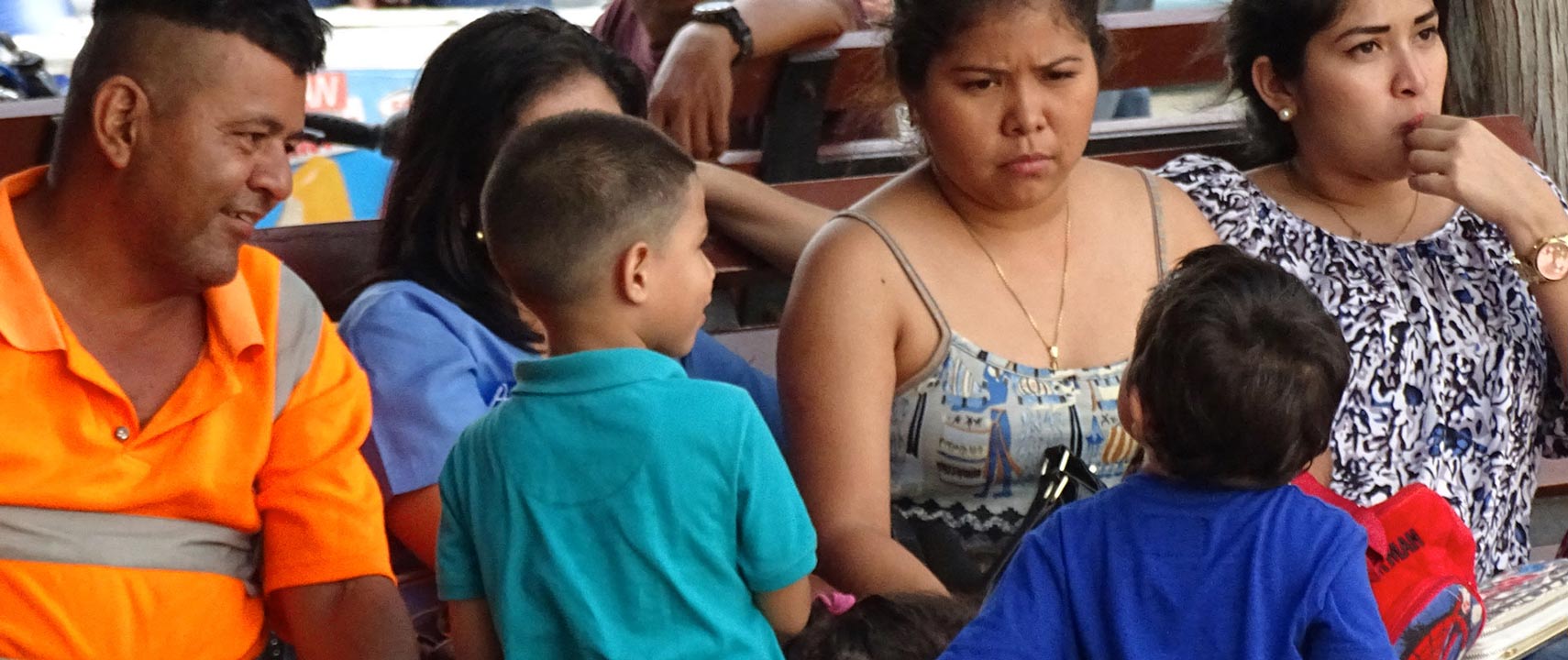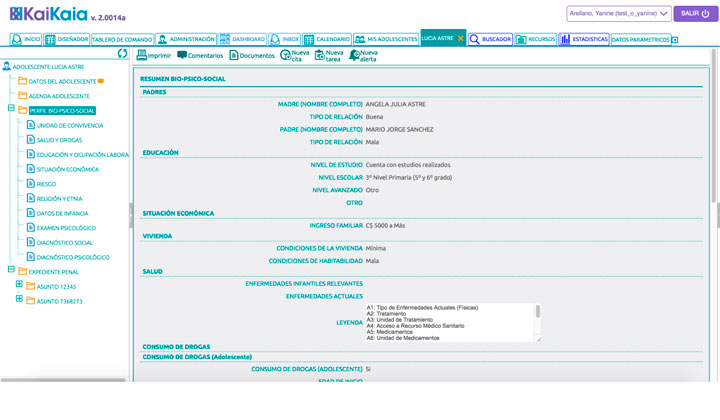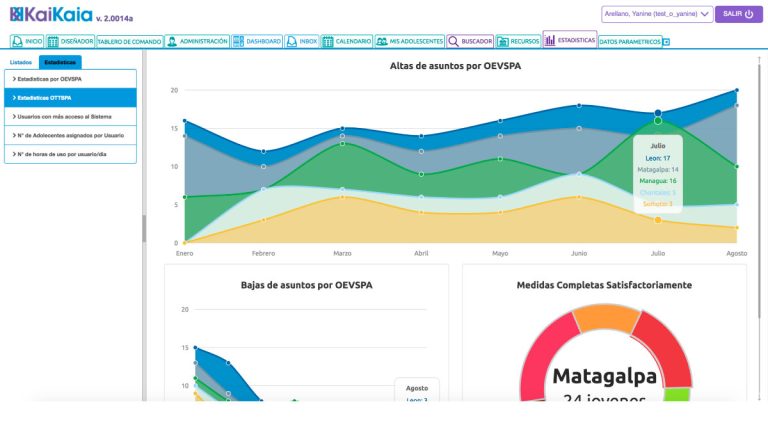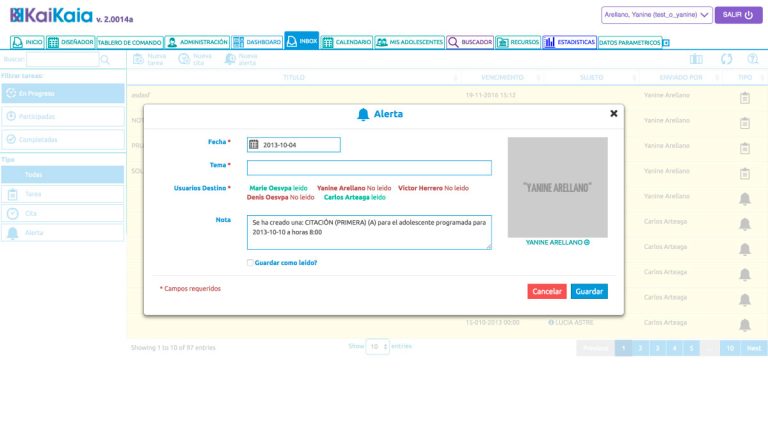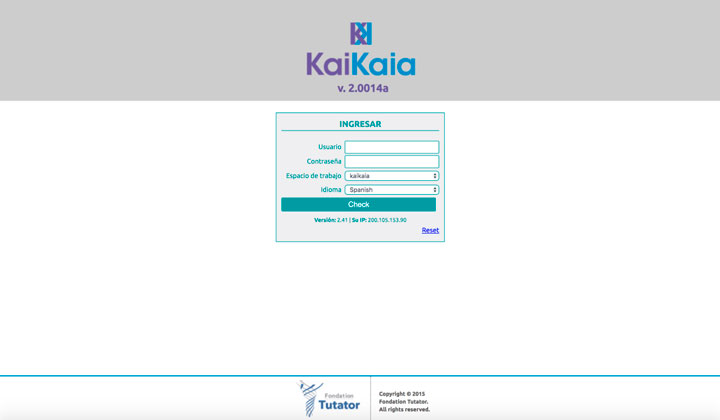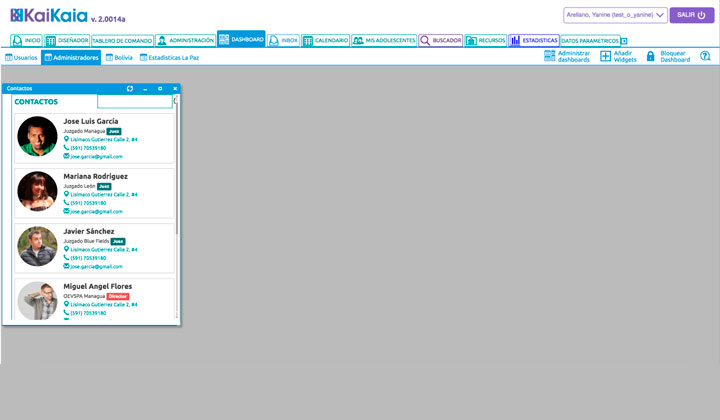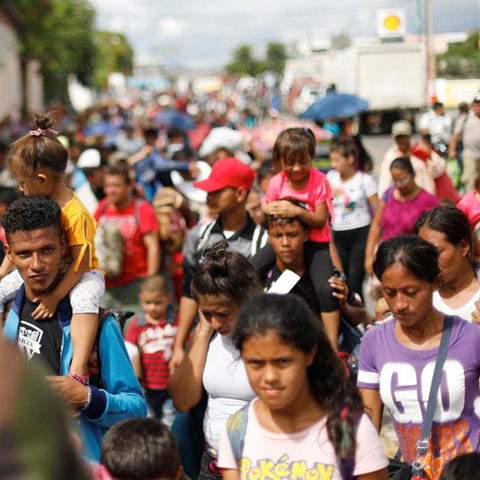
En 2007, le Nicaragua s'est doté d'une loi très progressiste sur la justice des mineurs, qui prévoit notamment des alternatives à la détention pour les adolescents en conflit avec la loi. Cette loi a été adoptée en 1998, mais sa mise en œuvre a été bloquée pour diverses raisons :
En 2007, en partenariat avec la Fondation Terre des hommes, Tutator a commencé à travailler avec la Cour suprême de Managua sur un projet de réforme du système de justice pour mineurs basé sur l'application de la loi actuelle promouvant la justice réparatrice et les alternatives à la détention.
La première phase du projet a consisté en une évaluation du processus de justice pour mineurs et en l'élaboration d'un nouveau code de procédure pour la justice pour mineurs. Une fois ce nouveau code développé et approuvé par la Cour Suprême, Tutator et Terre des Hommes ont aidé à sa mise en œuvre : recrutement, formation et déploiement d'équipes multidisciplinaires (typiquement un psychologue, un travailleur social et un éducateur) dans les bureaux à travers le pays responsables de la mise en œuvre des mesures alternatives à la détention et du suivi individualisé de chacun des adolescents.
Une fois ces bureaux dotés en personnel et opérationnels, Tutator a commencé à travailler sur la spécification, le développement et le déploiement d'un système de gestion des dossiers pour le système de justice pour mineurs du pays. Ce logiciel s'appelait Kaikaia, d'après un mot dialectal local signifiant "surveillance".
Les objectifs du logiciel Kaikaia étaient les suivants :
Cet outil de gestion des dossiers a été déployé avec succès dans les 17 régions du pays au début de l'année 2010. Aujourd'hui, chaque mineur en conflit avec la loi au Nicaragua peut bénéficier de mesures de réparation si/quand le juge décide que la privation de liberté peut être évitée.
Ce juge, ainsi que l'équipe chargée du suivi de cet enfant, ont un accès instantané à l'état d'avancement du dossier grâce au système Kaikaia et, en fonction de ce qu'ils voient, ils peuvent décider d'apporter les ajustements nécessaires aux différentes mesures.
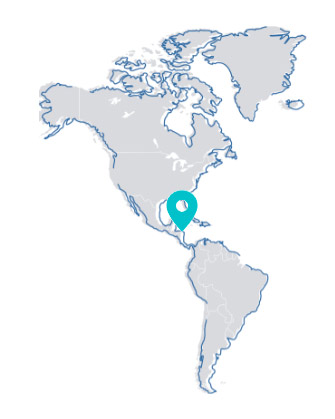
Démarrage tester l’expérience

La personne chargée de superviser les 17 équipes de suivi nous a confié que "Kaikaia fait une différence, non seulement pour ces enfants dans le système judiciaire, mais aussi pour leur famille, leur quartier et leur communauté.
En effet, grâce à Kaikaia, ces enfants ont le sentiment d'être perçus par le système comme une personne et non comme un simple numéro de dossier. Ils sentent que le juge les connaît et les comprend, ce qui leur donne la motivation de s'améliorer et de réussir quelque chose".
Le Nicaragua est l'un des pays les plus pauvres d'Amérique latine (par mesure du RNB) et tout projet dans ce pays représente un défi en raison de la situation économique.
Le paysage politique du Nicaragua, même s'il est resté stable pendant la durée de notre projet, est complexe. Comprendre et naviguer dans ce paysage, en particulier lorsque l'on travaille avec les institutions les plus élevées du pays, peut être source de surprises, de frustrations et de retards sans fin.
Il s'agissait du premier projet de Tutator et nous développions notre plateforme en même temps que l'outil Kaikaia ; nous avons donc dû apprendre beaucoup en très peu de temps.
